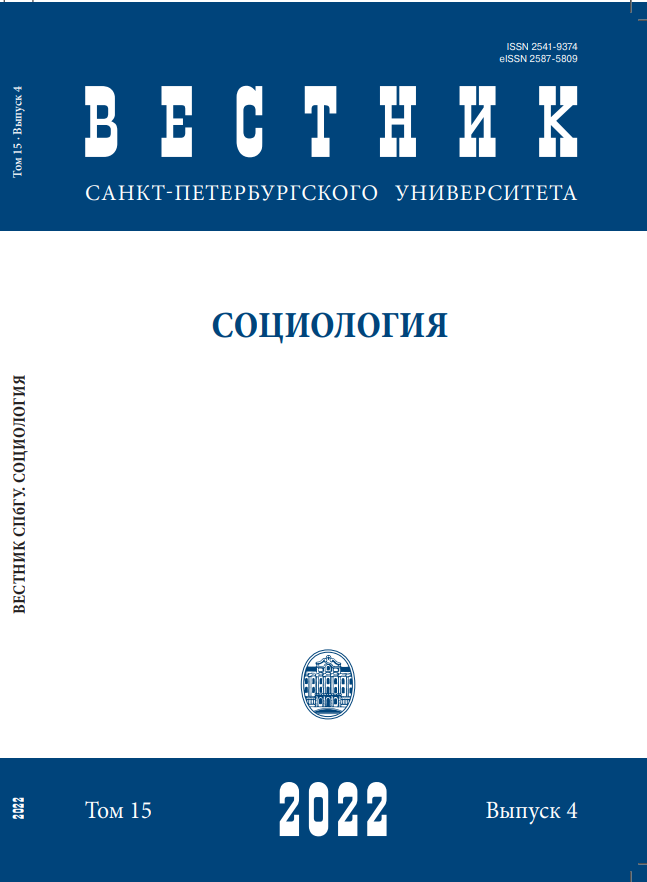Влияние (не)схожести эмансипативных ценностей индивидов на субъективное благополучие
DOI:
https://doi.org/10.21638//spbu12.2022.402Аннотация
В настоящее время социальные науки уделяют много внимания последствиям схожести или отличия человека от своего окружения. Одним из аспектов таких исследований являются исследования ценностных установок, то есть максимально обобщенных целей индивида, на основании которых различные явления оцениваются как хорошие или плохие. Чаще всего исследователи изучают именно вопрос схожести и приходят к выводу, что схожесть с другими делает людей счастливее, увереннее в себе и улучшает качество отношений с людьми. Лишь немногие исследования изучают влияние отличий человека от большинства, что открывает новые горизонты для исследований. На основе данных последних волн Европейского и Всемирного исследований ценностей ( N = 122 224) эта статья рассматривает вопрос, влияет ли отличие ценностных установок, измеренных как эмансипативные ценности (ЭЦ) по Вельцелю, от среднестрановых показателей на субъективное благополучие (СБ) индивида. В результате проведенного анализа мы установили, что индивидуальные отличия имеют разные эффекты на СБ в зависимости от (1) знака их отклонения от среднестрановых показателей и (2) уровня ЭЦ страны. В низкоэмансипативных странах менее эмансипативные по сравнению с большинством люди отличаются более высоким уровнем СБ. В странах с высоким уровнем ЭЦ индивидуальные отличия ЭЦ не влияют на СБ. При этом высокий уровень ЭЦ страны сам по себе влияет на СБ значительно сильнее, чем индивидуальные отличия.
Ключевые слова:
субъективное благополучие, гипотеза схожести, эмансипативные ценности, анализ поверхности отклика
Скачивания
Библиографические ссылки
Загрузки
Опубликован
Как цитировать
Выпуск
Раздел
Лицензия
Статьи журнала «Вестник Санкт-Петербургского университета. Социология» находятся в открытом доступе и распространяются в соответствии с условиями Лицензионного Договора с Санкт-Петербургским государственным университетом, который бесплатно предоставляет авторам неограниченное распространение и самостоятельное архивирование.




